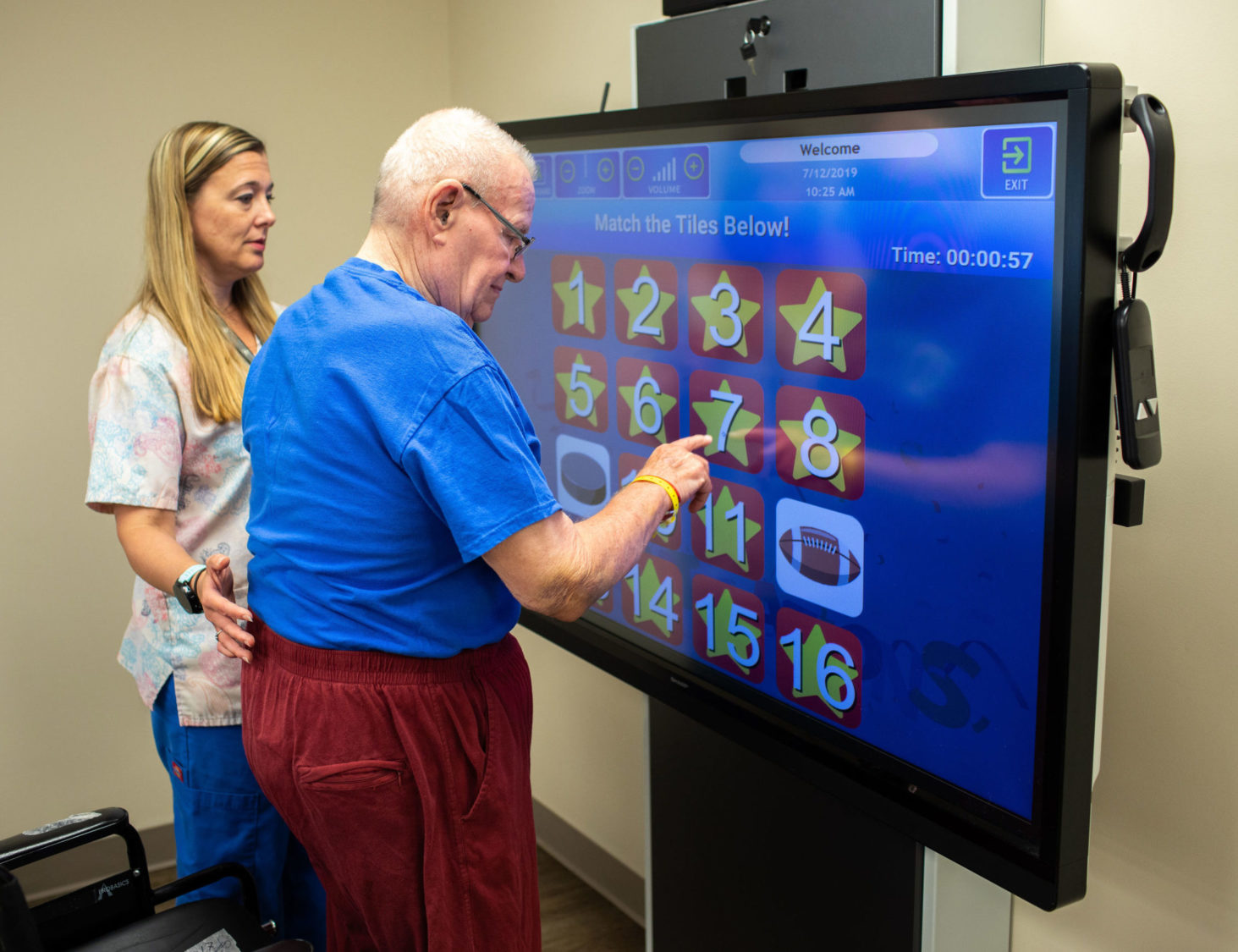
Therapy using an interactive touchscreen system successfully engaged eldercare community residents with dementia and improved functional outcomes in a new study. Based on the results, the operator plans to roll out the technology systemwide among its rehabilitation teams.
The It’s Never 2 Late system includes a large touchscreen and customizable components. Therapists can use it to access numerous apps, including games that can be integrated into physical and occupational rehab and memory care programs. The technology was already a long-standing component of Presbyterian SeniorCare Network’s lifestyle programs when the Oakmont, Pennsylvania-based operator decided to study its use in post-acute rehabilitation for residents with dementia.
Cognitive limitations can interfere with engagement in rehabilitation, researcher Steven Zarit, Ph.D., of Penn State, told McKnight’s. The study sought to find whether interactive technology could enable residents to participate more fully and thereby improve functional outcomes, he said.
The researchers followed about 100 individuals in two eldercare communities. All received occupational and physical therapy for about 10 to 14 days, typically after a hospital stay. In one facility, residents had therapy as usual. In the other, therapists used the touchscreen system to incorporate music, visuals and games personalized to the residents’ interests and tastes.
Participants who used the technology had significantly higher goal attainment than their peers who did not, the investigators found. These residents also had higher levels of engagement at the study’s start, and greater increases in engagement as therapy continued, noted Zarit, a clinical gerontologist.
The results suggest that technology-inspired engagement drove better outcomes, Zarit and colleagues said. When a resident colored an onscreen picture, for example, the therapist might raise the artwork higher to encourage higher arm positioning.
“Before you knew it, they were painting with their arm above their original goal height,” said Carrie Chiusano, executive director of the operator’s Dementia Care Center of Excellence. In another case, a resident who loved airplanes moved from frustration to full participation when he played a flight simulation game.
The technology “adds to therapists’ clinical toolbox, helping them gain the attention of persons with dementia and engage them in activities more effectively,” concluded Zarit.
Presbyterian SeniorCare Network is currently expanding the technology into its rehabilitation programs for patients with dementia, said Chiusano. All residents who qualify for dementia-related care at intake are included, she added.
Full findings were published in the journal Aging and Mental Health.




